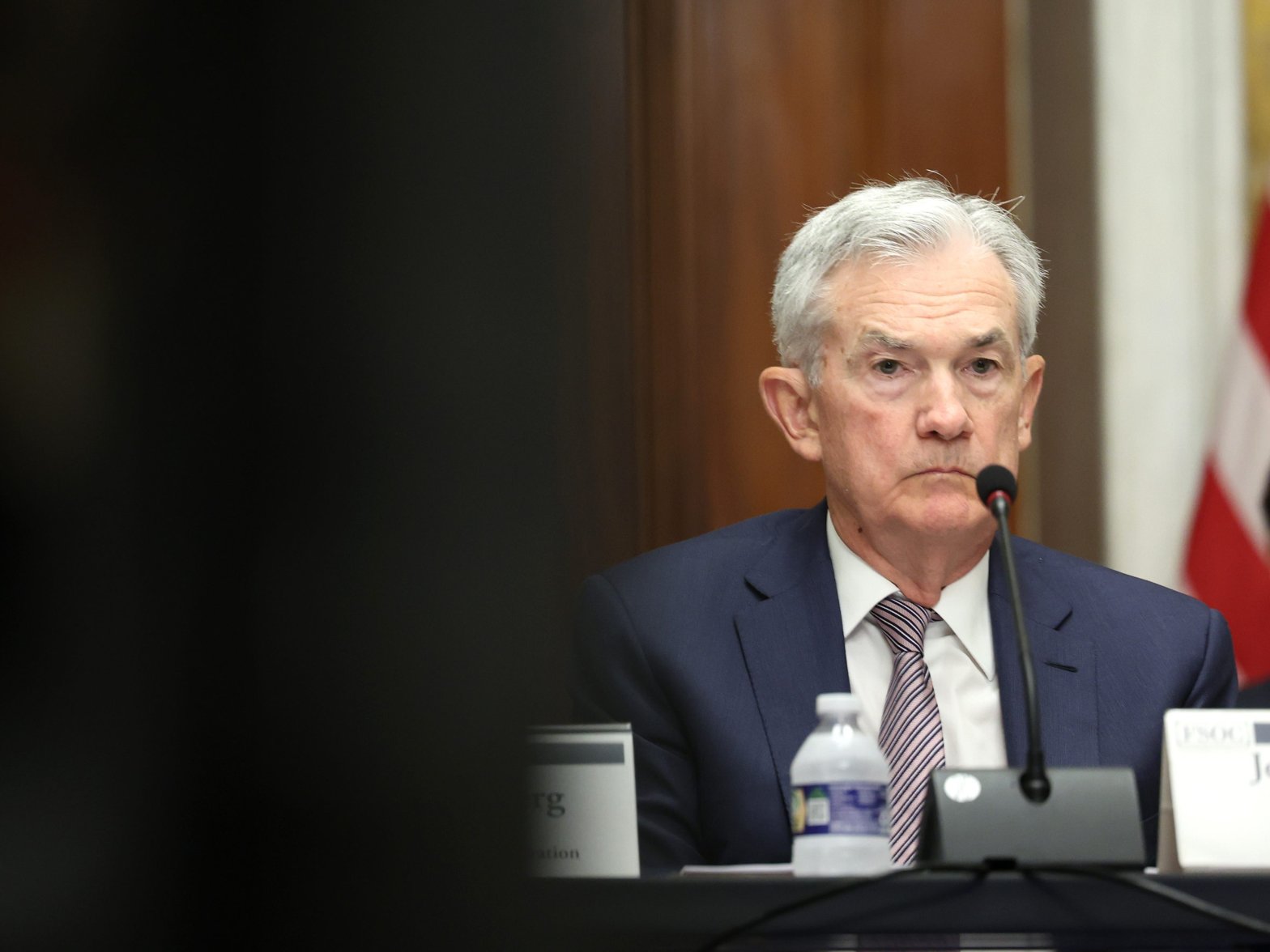Federal Reserve Chair Jerome Powell delivered his economic outlook remarks at Jackson Hole on Friday. He did not specify what the bank’s next move will be and committed to reaching the 2% inflation target. But he said the Fed will “proceed carefully” in determining whether to continue raising rates. Loading Something is loading.
Thanks for signing up!
Access your favorite topics in a personalized feed while you’re on the go.
Federal Reserve Chair Jerome Powell delivered his highly-anticipated speech on the central bank’s outlook in Jackson Hole, Wyoming — and he signaled relief could soon be coming for consumers.
On Friday, Powell took the podium for the Fed’s annual economic policy symposium hosted by the Kansas City Fed. Following a series of interest rates hikes since March 2022 — most recently a 25 basis point hike in July following a June pause — all eyes were on Powell to see if those hikes will continue at the next Federal Open Market Committee meeting in September.
True to form, Powell did not give any certainty as to what the Fed’s next move will be. He did note that with inflation continuing to inch closer to the central bank’s 2% target, the FOMC will carefully consider whether it might be time to pause hikes again next month.
“Doing too little could allow above-target inflation to become entrenched and ultimately require monetary policy to wring more persistent inflation from the economy at a high cost to employment. Doing too much could also do unnecessary harm to the economy,” Powell said during his remarks.
“As is often the case, we are navigating by the stars under cloudy skies,” he continued. “In such circumstances, risk-management considerations are critical. At upcoming meetings, we will assess our progress based on the totality of the data and the evolving outlook and risks. Based on this assessment, we will proceed carefully as we decide whether to tighten further or, instead, to hold the policy rate constant and await further data.”
The data is key in determining the Fed’s next move. The Consumer Price Index, a measure of inflation, rose 3.2% year over year in July, a slight increase from June’s 3.0% reading. Additionally, core PCE inflation, which excludes food and energy, saw “lower monthly readings for core inflation in June and July” based on FOMC estimates and Bureau of Economic Analysis readings. While Powell said it’s a good start, “two months of good data are only the beginning of what it will take to build confidence that inflation is moving down sustainably toward our goal,” he said.
The unemployment rate has offered another promising sign for the Fed in its inflation fight. The US unemployment rate ticked down from 3.6% in June to 3.5% in July. Additionally, just 187,000 nonfarm payrolls were added that same month. Monthly job openings have declined as well, based on the data as of June, the most recent month available. The Fed needs to see the labor market cooling off because if there are too many jobs and too few people, wages will increase and put an upward pressure on prices.
While a pause on interest rate hikes could be in the cards in September, nothing is certain, and some Democratic lawmakers have frequently warned Powell against continuing to raise rates due to the potential consequences it could have on the economy and Americans. Massachusetts Sen. Elizabeth Warren, for example, previously told Insider that “the Fed resuming its aggressive rate hike campaign could be devastating for our economy, and disproportionately harm marginalized communities. Chair Powell must maintain the Fed’s pause on rate hikes and avoid further rate increases that threaten our economy and risk throwing Americans out of work.”
The one thing Powell confirmed is that reaching 2% inflation remains the Fed’s target, and the central bank will keep working to reach that goal.
“Powell didn’t commit to whether the Fed would raise rates or not, but two things jump out from his comments: they will not move the goal posts off the 2 percent inflation objective and interest rates aren’t going down any time soon,” Greg McBride, chief financial analyst at Bankrate, said in a statement.
